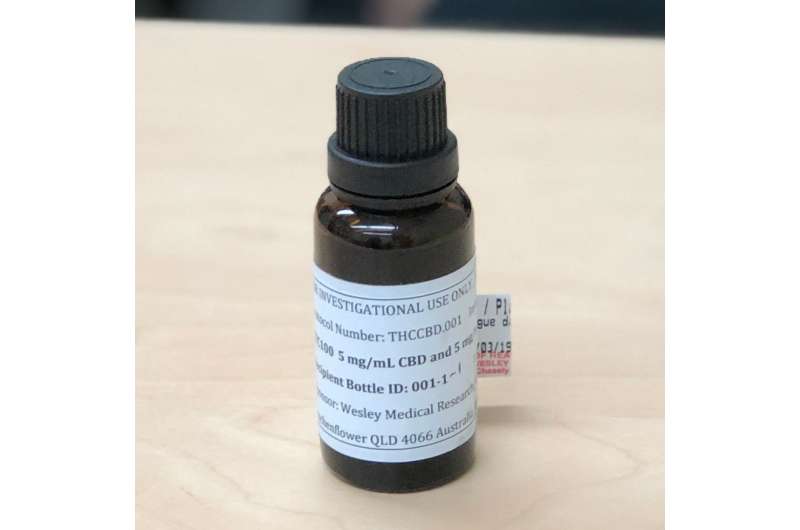Can medicinal cannabis treat the tics in Tourette syndrome?

A pioneering clinical trial investigating medicinal cannabis as a potential treatment for people living with Tourette syndrome will be conducted by Wesley Medical Research, with the cannabis supply facilitated by Lambert Initiative for Cannabinoid Therapeutics at the University of Sydney.
The trial is the first of its kind in Australia and will take place at Wesley Medical Research in Brisbane led by Chief Investigator and neuropsychiatrist Dr. Philip Mosley. Participants will complete two periods of treatment with either a medicinal cannabis drug or a placebo, with both investigators and participants unaware of treatment status until the end of the trial.
"There is already early evidence to support the successful treatment of Tourette syndrome with cannabinoids," said Professor Iain McGregor, Academic Director of the Lambert Initiative. "This clinical trial could have a major impact and greatly improve the lives of those living with Tourette syndrome."
"Given the public interest in therapeutic use of cannabis, it's important to conduct rigorous and methodologically-sound research," Dr. Mosley said. "The purpose of this clinical trial is to investigate whether medicinal cannabis is a potential therapy for people with Tourette syndrome."
About Tourette syndrome
Tourette syndrome is a neurological disorder that develops in childhood and is characterised by involuntary movements and vocalisations (known as tics), which may be painful, embarrassing and functionally impairing.
There is currently no known cure for Tourette syndrome. Treatment aims to help control tics that inhibit everyday functioning, however current medication has been known to produce negative side effects such as weight gain, sleepiness and depression.
Living with Tourette syndrome
Chris Wright is the first participant in the trial. Chris developed Tourette syndrome in childhood and despite medication, his condition has persisted. Some people with Tourette syndrome experience side-effects to existing therapies including fatigue and weight gain.
At 31, Chris is working full-time in a customer service position in Brisbane and spends his day trying to regulate his tics. "Any reprieve would be very welcome. It is getting to the point where I don't know what to do, it feels as though it all gets too much sometimes," said Chris.
Participants in the clinical trial at Wesley Medical Research will complete two six-week "crossover" periods of treatment with active drug or placebo, with both participants and investigators unaware of treatment status until the trial is complete.
"Tourette syndrome has really been a blow to my confidence ... my life in general, I often spend my days off sleeping and recovering just to do it all again," Chris said.
The trial drugs
Medicinal cannabis, developed to pharmaceutical standards, contains a mixture of cannabidiol (CBD) and tetrahydrocannabinol (THC) – two active ingredients derived from the cannabis plant.
In collaboration with the Lambert Initiative, Bod Australia Limited will be supplying the pharmaceutical grade cannabis extract to be used in the trial. The trial will examine the safety and efficacy of cannabinoids on tic frequency as well as the psychiatric and cognitive symptoms associated with Tourette syndrome.
"Our focus is to give people like Chris these opportunities to improve their quality of life. We offer hope and answers through medical research. We are fortunate to have dedicated frontline clinicians like Dr. Mosley leading this important work and donors who continue to support this valuable work," said Dr. Jennifer Schafer, Senior Clinical Trials Manager.















